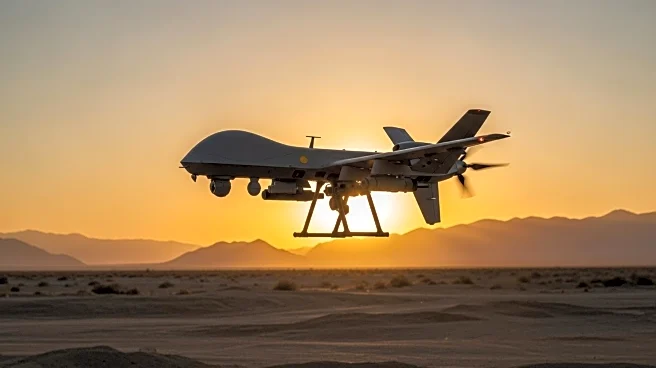What's Happening?
President Trump announced efforts to regain control of the Bagram air base in Afghanistan from the Taliban. During a joint news conference with British Prime Minister Keir Starmer, Trump described the base as strategically important, located near China's nuclear facilities. The U.S. military had left the base four years ago, and discussions on its return are ongoing. The base served as a key site for U.S. counterterrorism operations and has a controversial history involving detention centers.
Why It's Important?
Regaining control of Bagram air base could enhance U.S. strategic military presence in the region, potentially impacting geopolitical dynamics. The base's proximity to China adds a layer of strategic importance, influencing U.S.-China relations. The move may also affect U.S. foreign policy and military strategy in Afghanistan, as well as relations with the Taliban.
What's Next?
Negotiations between the U.S. and Taliban regarding the air base are expected to continue. The outcome could influence future U.S. military operations and diplomatic relations in the region. Stakeholders, including international allies and adversaries, may react to the developments, shaping broader geopolitical strategies.
Beyond the Headlines
The effort to regain Bagram air base highlights ongoing challenges in U.S.-Afghanistan relations post-withdrawal. It raises questions about the long-term impact of U.S. military presence in the region and the ethical implications of past operations at the base.










